I'm trying to implement Korf's algorithm to generate all Rubik's cube corners permutations. In total it must be 8! * 3^7(88,179,840), but the program gets Killed after generating around (36,000,000) permutations. I used Lehmer code indexing for the permutations and created a table of size (88,179,840) knowing that the index would never surpass that value. uint32_t *table = (uint32_t *)calloc(88179840, sizeof(uint32_t));. I checked the result of the indexing function and it gives the right result... for example the permutation (0, 1, 2, 3, 4, 5, 6, 7) it gives 0 and in (7, 6, 5, 4, 3, 2, 1, 0) it gives 40319.
I made a BFS function to expand nodes and get all the permutations and index them. then store them in a file.
void bfs(t_state *top, t_state *tail)
{
uint32_t i, childCost;
uint32_t permIndex;
t_state *curr;
t_cube new_cube;
uint32_t *onesCount;
uint32_t *table = (uint32_t *)calloc(88179840, sizeof(uint32_t));
FILE *fp;
fp = fopen("./perms.txt", "w+");
onesCount = table_of_ones();
permIndex = get_corner_index(top->cube, onesCount, fp);
fprintf(fp, "%d|%d \n", permIndex, 0);
table[permIndex] = 1;
while (top)
{
curr = pop(&top);
childCost = curr->cost + 1;
i = 1;
while (i < 19)
{
new_cube = apply_move(curr->cube, i, "");
permIndex = get_corner_index(new_cube, onesCount, fp);
if (table[permIndex] == 0)
{
table[permIndex] = 1;
fprintf(fp, "%d|%d\n", permIndex, childCost);
tail = push(tail, new_cube, childCost);
if (top == NULL)
top = tail;
}
i++;
}
free(curr);
}
fclose(fp);
free(onesCount);
}

